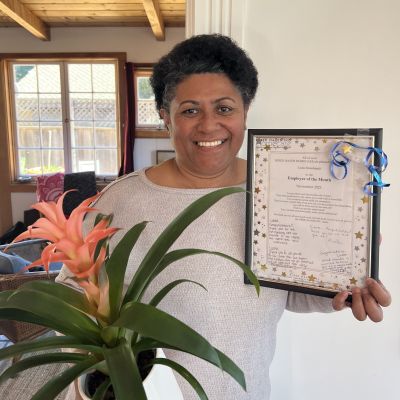Why Boredom in Dementia Is a Bigger Deal Than You Think and How to Beat It


Boredom in dementia can lead to agitation and anxiety, but the right activities spark joy and connection.
Some pairings just make sense: mac and cheese, peanut butter and jelly, cozy socks and chilly mornings. But boredom in dementia? That’s a combination no one wants. The effects can go far beyond a quiet moment of restlessness. Studies show that a lack of meaningful stimulation can lead to increased hallucinations, agitation, wandering, anxiety, depression, and even delirium. And it’s not just the person with dementia who suffers; boredom can also affect you as the caregiver, increasing the risk of burnout, sadness, and emotional fatigue.
The good news? Boredom isn’t inevitable. It’s preventable. And often, it takes just a few creative adjustments to turn a long, difficult day into one filled with connection and calm.
The Root of Restlessness
When someone is living with dementia, the world can feel unpredictable and confusing. Without structured, engaging activities, the mind has too much time to wander…and not in a peaceful, daydreamy way. Instead, this idle time often leads to frustration, fear, and behavioral changes. If you’ve ever noticed your family member becoming more agitated during stretches of downtime, you’re not alone.
Simple Ways to Break the Boredom Cycle
- Start With Joy. What lights up their face? A familiar song? The feel of a worn cookbook? The wag of a dog’s tail? Use those moments as clues. You can plan activities that reflect their personality and past: gardening for someone who loved the outdoors, or helping prep a meal if cooking was their pride and joy.
- Encourage Reminiscing. Nostalgia is powerful. Pull out old photo albums, home movies, or news clips from years past. Talking about long-ago memories can create instant emotional connection and help ground someone with dementia in something familiar and safe.
- Make Music Part of the Day. Whether it’s listening to the radio, playing an instrument, or humming along with karaoke, music taps into parts of the brain that often remain accessible even in the later stages of dementia.
- Involve Them With Purposeful Tasks. Folding towels, sorting buttons, or organizing the pantry might not seem groundbreaking, but these simple tasks offer purpose and boost self-worth, something that often takes a hit when cognitive abilities decline.
- Balance Social Interaction. Too much stimulation can be overwhelming, but too little can feed loneliness. Invite visitors in small doses. A friendly face or even a video chat can do wonders.
- Track What Works. Keep a notebook with notes on what your family member responds to and when. Over time, you’ll start to notice patterns: what times of day are best for certain activities, what music soothes, and what triggers restlessness.
Professional Help Can Make All the Difference
Preventing boredom in someone with dementia takes effort, and can quickly become overwhelming. A professional caregiver from Hired Hands Homecare can offer consistent companionship, creativity, and expertise to help ease dementia-related symptoms. Our caregivers know how to engage someone with dementia meaningfully and safely, through guided activities, calming routines, or just a shared laugh over coffee.
Some of the ways we help include:
- Personalized, ability-appropriate activities
- Gentle support with hygiene and grooming
- Thoughtful meal planning and preparation
- Transportation for engaging outings
- Reminiscing conversations that spark connection
You get peace of mind, and a well-deserved break.
Contact us at (866) 940-4343 to find out how we bring joyful, boredom-busting dementia care to someone you love in Novato, Santa Rosa, Napa, or throughout the Bay Area.








Leave a Reply